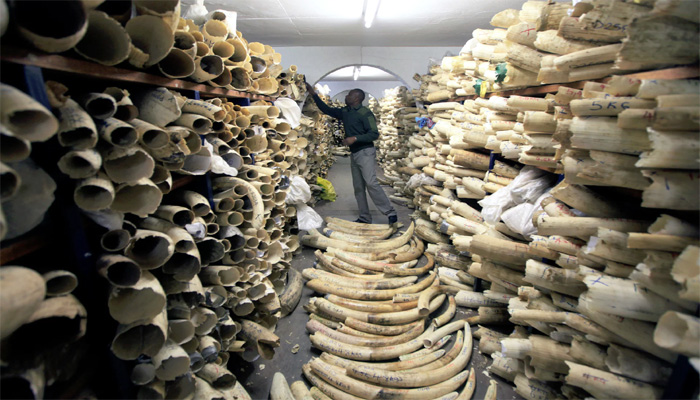-
Tips for becoming a good boxer - November 6, 2020
-
7 expert tips for making your hens night a memorable one - November 6, 2020
-
5 reasons to host your Christmas party on a cruise boat - November 6, 2020
-
What to do when you’re charged with a crime - November 6, 2020
-
Should you get one or multiple dogs? Here’s all you need to know - November 3, 2020
-
A Guide: How to Build Your Very Own Magic Mirror - February 14, 2019
-
Our Top Inspirational Baseball Stars - November 24, 2018
-
Five Tech Tools That Will Help You Turn Your Blog into a Business - November 24, 2018
-
How to Indulge on Vacation without Expanding Your Waist - November 9, 2018
-
5 Strategies for Businesses to Appeal to Today’s Increasingly Mobile-Crazed Customers - November 9, 2018
Global conservation community urges world to put ban on domestic ivory trade
The number of savanna elephants in Africa is rapidly declining, and the animals are in danger of being wiped out because of the ivory trade, according to a recent study, which said the population plummeted by about 30 percent from 2007 to 2014 and is declining about 8 percent a year.
Advertisement
In a bid to stop the killing of elephants for their tusks, world governments voted Saturday at a major conservation conference to urge the closure of all domestic ivory markets.
Following three days of political maneuvering, disagreements and walkouts, delegates at the International Union for Conservation of Nature (IUCN) congress in Hawaii agreed on a text that calls on countries to close the internal trade of ivory “as a matter of urgency”.
In response, the IUCN, which has 1 300 members from more than 160 countries, voted in favour of closing domestic markets by an overwhelming majority of 91%.
Later this month the Convention on International Trade in Endangered Species (CITES) will take place in Johannesburg.
At the start of the Congress, World Conservation Congress lead author Andrea Turkalo explains that it would take almost a century for Africa’s forest elephants to recover its population from the intense amount of poaching they have fallen prey to over almost the last 15 years. But it could help countries craft policies.
“This is a huge boost for elephants”, says Rosalind Reeve, senior advisor to the David Shepherd Wildlife Foundation, which has been actively campaigning for the closure of domestic ivory markets. We have been encouraged by USA states including Hawaii, New York, and California for banning ivory sales, countries including the United States and France for closing their markets, and by China and Hong Kong SAR promising to do the same.
The elephant population in Botswana, Namibia, South Africa and Zimbabwe is in Appendix II, meaning the countries can trade in ivory with permission from CITES.
“While China has not taken the final step needed to shut down its domestic ivory market, they have committed to close their market soon and inflict the largest blow to the ivory criminals”.
HONOLULU (AP) An worldwide environmental group voted Saturday to call on every country to shut down domestic ivory markets that threaten elephants.
While the worldwide trade in elephant ivory has, with some exceptions, effectively been banned since African elephants were placed on Appendix I of the Convention on global Trade in Endangered Species (CITES) in 1989, legal domestic ivory trade continues to varying extents in many countries across the world.
Advertisement
The IUCN does not regulate the ivory trade, domestically or globally.




























